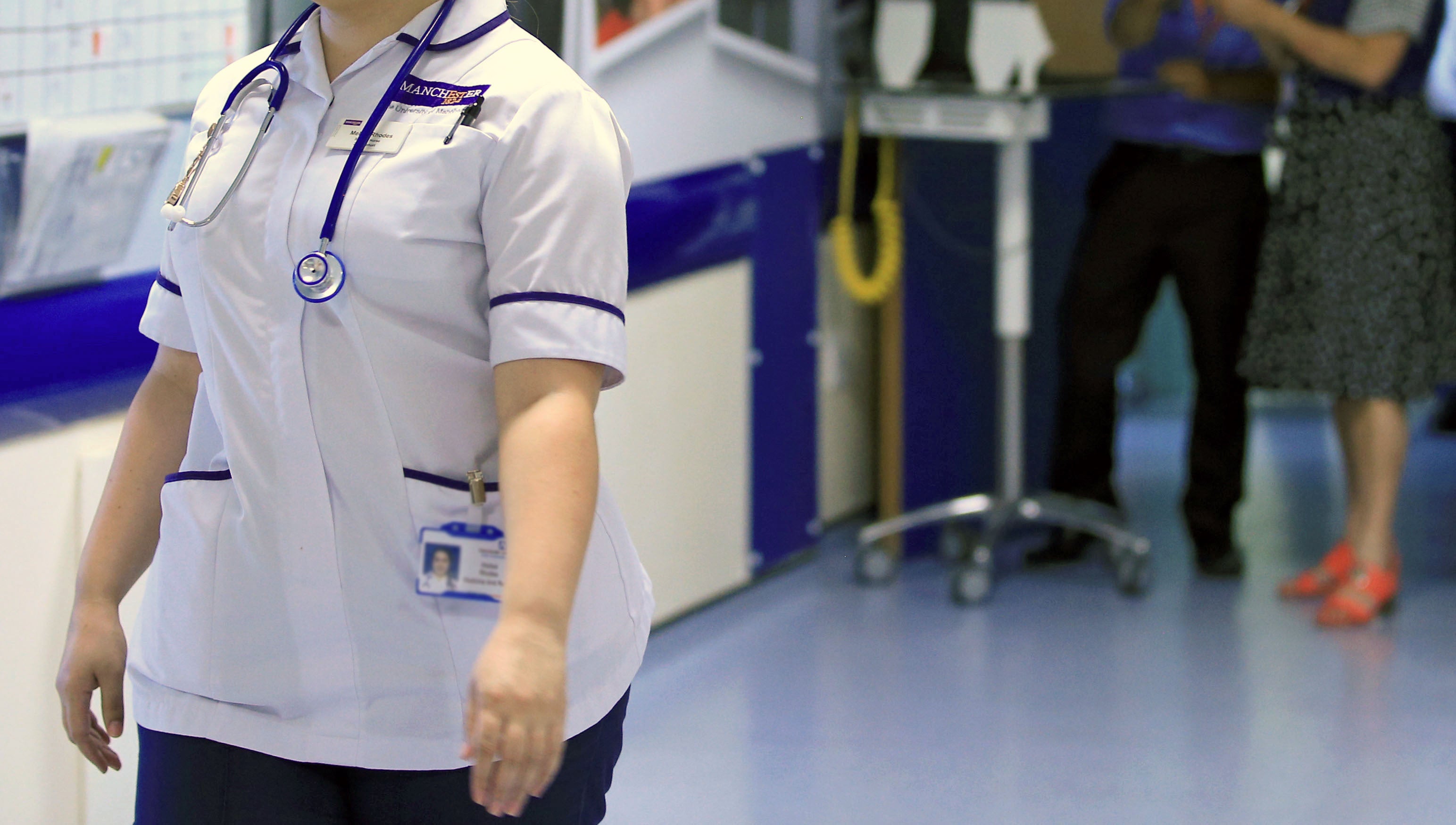NHS must stop filming mental health patients in bedrooms 24 hours a day, warn campaigners
Monitoring system an ‘unforgivable violation that will inevitably compound previous traumatic experiences,’ campaigners say

Your support helps us to tell the story
From reproductive rights to climate change to Big Tech, The Independent is on the ground when the story is developing. Whether it's investigating the financials of Elon Musk's pro-Trump PAC or producing our latest documentary, 'The A Word', which shines a light on the American women fighting for reproductive rights, we know how important it is to parse out the facts from the messaging.
At such a critical moment in US history, we need reporters on the ground. Your donation allows us to keep sending journalists to speak to both sides of the story.
The Independent is trusted by Americans across the entire political spectrum. And unlike many other quality news outlets, we choose not to lock Americans out of our reporting and analysis with paywalls. We believe quality journalism should be available to everyone, paid for by those who can afford it.
Your support makes all the difference.NHS trusts must stop using continuous 24-hour filming equipment to record mental health patients in their bedrooms, a practice that is likely to retraumatise sexual violence victims, campaigners have said.
The warning comes after Camden and Islington NHS foundation trust halted use of the system after female patients and members of staff complained the constant surveillance was harming survivors of child sex abuse and those who suffered sexual violence as an adult.
Rosewood, an inpatient unit for women with mental health issues inside St Pancras Hospital in north London, previously used the Oxevision system to monitor patients, some of whom were sexual violence victims. It stopped using the system in November.
Oxevision, used by 22 other NHS trusts, enables staff to keep tabs on a patients’ breathing rate and pulse and records non-stop videos of patients which are then held for between 24 and 72 hours.
Camden and Islington NHS trust said it “discontinued the Oxevision pilot following concerns from some service users”. It added Oxehealth, the company which designed the system, had “offered to make modifications to the system” but “we took the decision to end the trial because we felt some service users would still feel uncomfortable”.
Campaigners told The Independent other NHS trusts must follow the trust’s lead and stop using the system or at least review how it is used.
Indy Cross, chief executive of Agenda, a charity which campaigns for women and girls at risk, said: "Women and girls in mental health services, and who are detained under the Mental Health Act, have faced significant levels of trauma, with many having experienced extensive histories of violence, exploitation and abuse across their lifetimes.
“More than half of women with mental health problems have experienced abuse – a link that is particularly pronounced for women with the most severe mental health problems.
“Women who have already experienced abuse and coercion tell us practices like these can damage their trust in services intended to support them, and can themselves be re-traumatising.”
Ms Cross said while it is “positive” Camden and Islington have acknowledged the potentially "damaging” repercussions of filming and stopped using Oxevision, it is imperative the NHS takes the issue a step further and stops the “surveillance of female patients across all mental health trusts”.
She added: “To truly embed trauma-informed practice across the mental health system, however, all mental health trusts must have policies, strategies and funding in place to recognise and respond to the gender-specific needs and experiences of women and girls in their care.”
To be stripped of your liberty and surveilled under the guise of ‘care’ is an unforgivable violation that will inevitably compound previous traumatic experiences of violation
Andrea Simon, director of the End Violence Against Women Coalition, told The Independent the NHS must acknowledge links between women’s poor mental health and gender-based violence.
“NHS trusts must review their use of 24-hour surveillance if they are to offer trauma-informed care to rape and abuse survivors,” she added.
“All of this is taking place against a backdrop of a chronic lack of state funding to meet the huge demand for life-saving counselling and therapeutic support provided by women's organisations.
“This results in long waiting lists and vital support remaining out of reach for many who seek it. This is a scandal which the government must end.”
Janey Starling, co-director of feminist campaign group Level Up, said the psychiatric system was “responsible for some of the most pernicious state violence, especially against women”.
She added: “To be stripped of your liberty and surveilled under the guise of ‘care’ is an unforgivable violation that will inevitably compound previous traumatic experiences of violation."
Dr Sanah Ahsan, a clinical psychologist and activist, warned “being held coercively under surveillance is psychologically exhausting” for any individual.
“To subject people to this in a supposedly therapeutic environment, people who have already survived experiences of trauma where consent is brutally removed is an undeniably harmful practice,” she said.
Oxehealth and NHS England have been contacted for comment.

